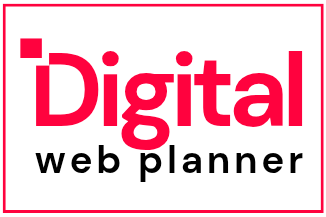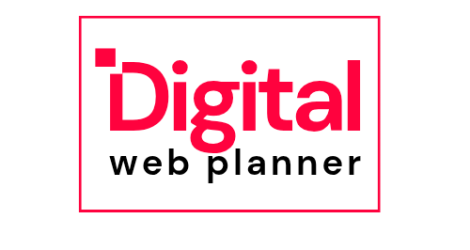
Digital marketing
Digital marketing is the process of using online channels and strategies to promote and grow a business. It leverages the internet and digital technologies to connect brands with their audience and achieve measurable results.In today’s world, digital marketing is essential for businesses of all sizes, helping them reach their target audience more effectively than traditional marketing methods.
The digital landscape offers a variety of tools that allow businesses to create personalized, cost-effective campaigns. From social media platforms to search engines, email marketing, and online ads, digital marketing enables companies to engage with their customers wherever they are.
One of the most powerful components of digital marketing is search engine optimization (SEO). By optimizing your website and content for search engines, you can improve your organic search ranking and attract more traffic. SEO strategies include keyword research, on-page optimization, link building, and technical SEO, all aimed at improving your website’s visibility.
Content marketing plays a pivotal role in digital marketing by creating valuable, relevant content to engage with potential customers. Blogs, videos, infographics, eBooks, and podcasts are just some of the content formats businesses can use to attract and nurture leads. Well-crafted content not only educates your audience but also helps build trust and credibility.
Social media marketing is another essential digital marketing strategy that connects brands with their audience on platforms like Facebook, Instagram, LinkedIn, and Twitter. With billions of active users worldwide, social media allows businesses to engage directly with potential and existing customers. Paid ads, influencer partnerships, and organic content all help amplify your brand’s reach.
*Email marketing* remains one of the most effective digital marketing tools. By sending targeted, personalized messages to your subscribers, you can build stronger relationships, nurture leads, and drive conversions. Email campaigns can be used to promote products, share valuable content, or announce updates, making it a versatile and high-ROI strategy.
Paid digital advertising, often referred to as PPC (pay-per-click) advertising, is another key aspect of digital marketing. Through platforms like Google Ads and social media ads, businesses can target specific demographics, geographies, and interests to drive traffic and conversions. With PPC, you only pay when someone clicks on your ad, making it a cost-effective way to reach a targeted audience.
Affiliate marketing* is a performance-based strategy where businesses reward affiliates (partners) for driving traffic or sales to their site. This allows businesses to expand their reach without upfront costs, as they only pay for actual results.
*Online public relations (PR) is becoming an integral part of digital marketing. This includes managing online reviews, building relationships with influencers, and earning media coverage through digital channels. Online PR helps to build your brand’s reputation and trust within your industry and audience.
An often overlooked but critical component of digital marketing is conversion rate optimization (CRO). CRO involves analyzing your website’s performance to identify opportunities to improve conversion rates, ensuring that visitors take desired actions, such as filling out a form or making a purchase. A small improvement in conversion rates can have a significant impact on your business’s revenue.
Mobile marketing has gained immense importance as mobile device usage continues to rise. Whether through mobile-friendly websites, apps, or SMS marketing, businesses must optimize their digital presence for mobile users. A mobile-optimized site ensures a seamless user experience, helping businesses retain customers and convert leads.
Video marketing is rapidly growing as an effective digital strategy. With platforms like YouTube, TikTok, and Instagram Stories, businesses can create engaging video content to showcase products, share tutorials, and build brand awareness. Video content often leads to higher engagement rates and helps customers connect emotionally with your brand.
Influencer marketing is a strategy that taps into the credibility and audience of social media influencers. By partnering with influencers who have large followings in your industry or niche, you can gain exposure, increase trust, and drive sales through authentic recommendations.
One of the significant advantages of digital marketing is the ability to measure and track performance. With tools like Google Analytics, you can monitor traffic, user behavior, and conversions, allowing you to optimize campaigns and adjust strategies in real-time. The ability to analyze data is a huge advantage over traditional marketing methods.
The growth of voice search and artificial intelligence (AI) is also influencing digital marketing strategies. Voice assistants like Siri, Alexa, and Google Assistant are becoming more common, and businesses need to optimize their content for voice queries. AI-powered tools are also helping marketers deliver more personalized experiences, analyze data, and automate campaigns.
Local SEO is essential for businesses targeting a local audience. By optimizing your website and online presence for local search terms, you can appear in search results when people look for products or services near them. Google My Business and online reviews are integral parts of a local SEO strategy.
*Remarketing* is another powerful digital marketing strategy. By targeting people who have already visited your website but didn’t convert, remarketing ads can bring them back to complete their purchase or action. Remarketing helps keep your brand top-of-mind for potential customers.
Incorporating user-generated content (UGC) into your digital marketing strategy can also enhance engagement and trust. Encouraging customers to share their experiences, reviews, or photos can provide authentic content that resonates with potential buyers.
Marketing automation is a key tool for streamlining and optimizing digital marketing campaigns. Automation software allows businesses to schedule and send emails, manage social media posts, and track leads, freeing up time for other important tasks. Automation improves efficiency and helps maintain consistent communication with leads and customers.
Chatbots and AI-driven customer service tools are becoming commonplace in digital marketing. They offer businesses the ability to provide 24/7 support, answer common questions, and guide users through their purchasing journey, improving customer satisfaction.
E-commerce marketing focuses on strategies tailored to online stores. By utilizing SEO, paid ads, social media, and email marketing, businesses can attract traffic, convert visitors, and drive repeat purchases. Optimizing the user experience and providing excellent customer service are essential to success in e-commerce.
*Data privacy* is an increasingly important consideration in digital marketing. With regulations like GDPR in place, businesses must ensure that they collect and store customer data responsibly. Building trust through transparency and respecting privacy helps businesses maintain positive relationships with their audience.
Lastly, digital marketing trends continue to evolve, with new tools, platforms, and strategies emerging all the time. Staying updated on the latest trends, such as augmented reality (AR) and interactive content, helps businesses remain competitive and innovative in their approach.
In conclusion, digital marketing is a multifaceted approach that covers various strategies to reach and engage an audience. From SEO and content marketing to social media, paid ads, and email campaigns, businesses must utilize a combination of tools to succeed in the digital world. Digital marketing offers measurable results, improved customer engagement, and the ability to stay competitive in an ever-changing landscape.

